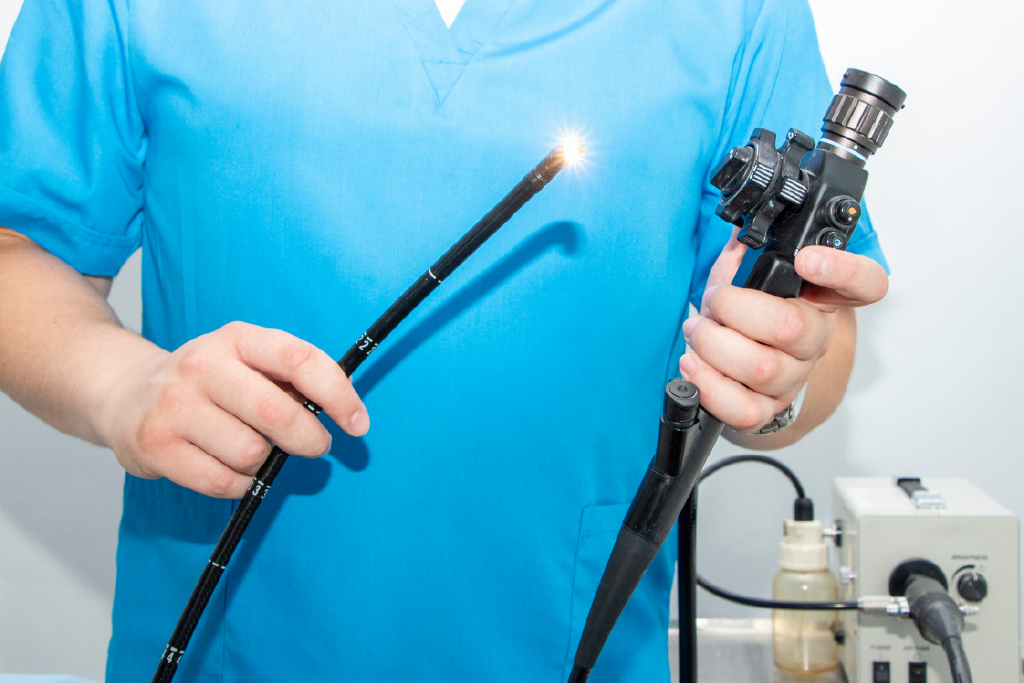
Endoscopic
Introduction
Endoscopic Mucosal Resection (EMR) takes center stage in the diagnosis and treatment of gastrointestinal cancers. Conducted by top gastro doctors, this minimally invasive surgical procedure utilizes an endoscope, equipped with a camera, for real-time visualization. Let’s explore the nuances of EMR, including its indications, procedure, and recovery process.
Table of Contents
- What is EMR?
- Indications and Contraindications
- Candidates for EMR
- Preparation Before EMR
- The EMR Procedure
- Post-EMR: What to Expect
- Recovery & Outlook
- FAQs
What is EMR?
EMR, or Endoscopic Mucosal Resection, is a therapeutic procedure spearheaded by leading gastro doctors. This minimally invasive surgery is designed for both diagnosis and treatment of precancerous lesions and early-stage cancerous tumors within the gastrointestinal tract. The endoscope, under the expertise of top gastro doctors, provides real-time insights into intricate gastrointestinal structures.
Indications and Contraindications
EMR applications, under the expertise of the best gastro doctors, span early-stage esophageal and colorectal cancers, resection of incidental tumors, and addressing superficial tumors (<2 cm). However, certain contraindications, such as deep lesions and larger tumors, call for alternative treatments. Patients with comorbidities or anesthesia allergies may be unsuitable for EMR.
Candidates for EMR
EMR, performed by the best gastro doctors at SRM Global Hospitals, primarily targets mucosal tumors. This makes it suitable for patients with precancerous lesions or tiny tumors. Larger lesions may require more invasive treatments like chemotherapy or endoscopic submucosal dissection.
Preparation Before EMR
Before EMR, patients receive detailed instructions, emphasizing communication with healthcare providers. Tailored dietary preparations, including liquid diets or fasting, are recommended by top gastro doctors based on the targeted gastrointestinal tract section. At SRM Global Hospitals, the best gastro hospital, experts will prepare you well
The EMR Procedure
During EMR, conducted by top gastro doctors at SRM Global Hospitals, patients receive general anesthesia or sedation. The high-definition endoscope, inserted through the mouth or anus, facilitates tumor identification without harm. The electric wire looping technique, under the skillful hands of gastromasters, enables precise tumor removal. Tissue samples undergo examination, aiding in diagnosis. Schedule a consultation with the leading gastro hospital for best results.
Post-EMR: What to Expect
Post-surgery, patients, overseen by leading gastro doctors, undergo monitoring until sedation wears off. A pathologist ensures complete tumor removal. Common side effects include a sore throat, upset stomach, or bloating, depending on the procedure’s focus.
Recovery & Outlook
Patients, following guidelines from top gastro doctors, adhere to post-procedure care. Follow-up visits, often within 12 weeks, involve endoscopic checks at SRM Global Hospitals to ensure optimal recovery. Additional tests or therapies may be recommended based on findings.
Most patients, under the care of Gastromasters at SRM Global Hospitals, can resume work the day after EMR, with a temporary liquid diet until full digestive tract healing.
FAQs
1.How long does the EMR procedure take?
The procedure typically lasts 30-60 minutes.
2.Advantages of EMR over traditional surgery
EMR, performed at the top gastro hospital such as SRM Global Hospitals offers lower mortality, lesser pain, faster recovery, lower complication risks, and minimal scarring.
3.Complications related to EMR
Rare complications may include bleeding, infection, gastrointestinal perforation, or esophageal scarring.
Conclusion
EMR, led by gastromasters at SRM Global Hospitals, stands as a transformative approach in gastrointestinal cancer management by top gastro doctors. Offering precision, minimal invasiveness, and enhanced recovery, this procedure continues to evolve, presenting a promising future in the ongoing battle against gastrointestinal cancers.






